What to Eat Before a Run on Keto: 9 Best Strategies

When you want to boost performance and results, there’s one question: “what to eat before a run on keto?” It can make or break a running workout.
Today we’re discussing the ketogenic diet, how to fuel for a run, and why this could be key to weight loss. If you’re looking for an intense workout that runs on dietary fats to burn fat, you’re in the right place.
Let’s start with the big question: can runners eat a high-fat, low-carb ketogenic diet?
Keto and Running: Can Runners Eat Keto?
Yes! The keto diet is perfect for runners and triathletes. It’s especially useful in the ultra distance.
These types of exercise are low-intensity and high duration. They’re fat-based anyway! The drawbacks of keto, lower top-level power, are rarely a major problem for runners.
The goal of a ketogenic diet is to improve fat metabolism. Running is a perfect combination for this goal. These factors also make it the most popular form of endurance exercise.
Ketogenic and other low-carb, high-fat diets are perfect for endurance. They are used to help ultra-runners maintain performance. Switching to fats helped them avoid “hitting the wall” during long runs.
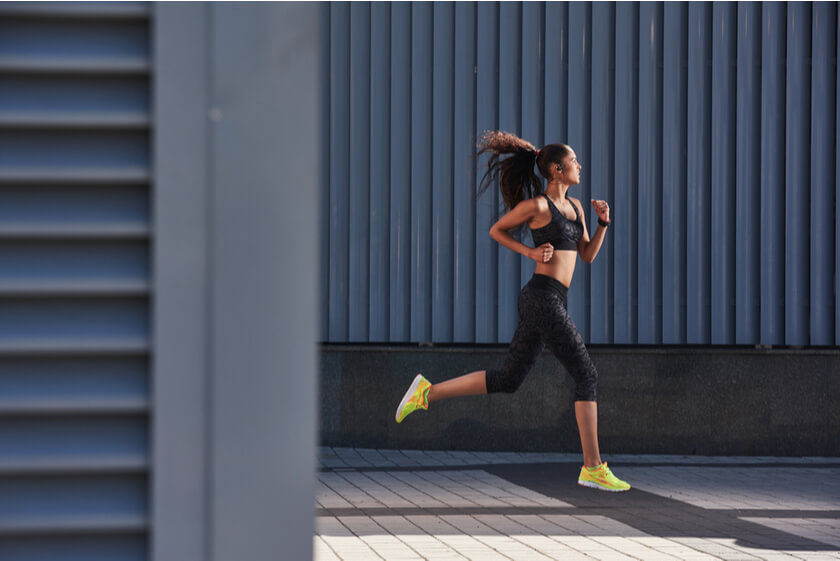
Advertisement
Endurance exercises at lower intensities utilize fats as the main fuel source. Below 60% output, fats are the main source of energy. This works in two directions:
- Running to improve keto diet efficiency and results
- Keto as a tool to improve running performance
These make up a cycle.
When you use running and keto properly, they’re among the best pairs. Keto makes running better. It allows you to run longer and improves your fat adaptation (or keto-adaptation). This produces better running performance, more fat loss, and better results.
What to Eat Before a Run on a Keto Diet?
Keto dieters should eat healthy fats and protein before a run. Medium chain triglycerides (MCTs) are the best kind of fats. Make sure you drink plenty of water, too, and get enough electrolytes like sodium and calcium.
Most fats absorb slowly, making them long-term energy. Faster-absorbing fats like MCTs are the exception. They improve ketone levels and are perfect for low-intensity distance running. Think half marathon or longer.
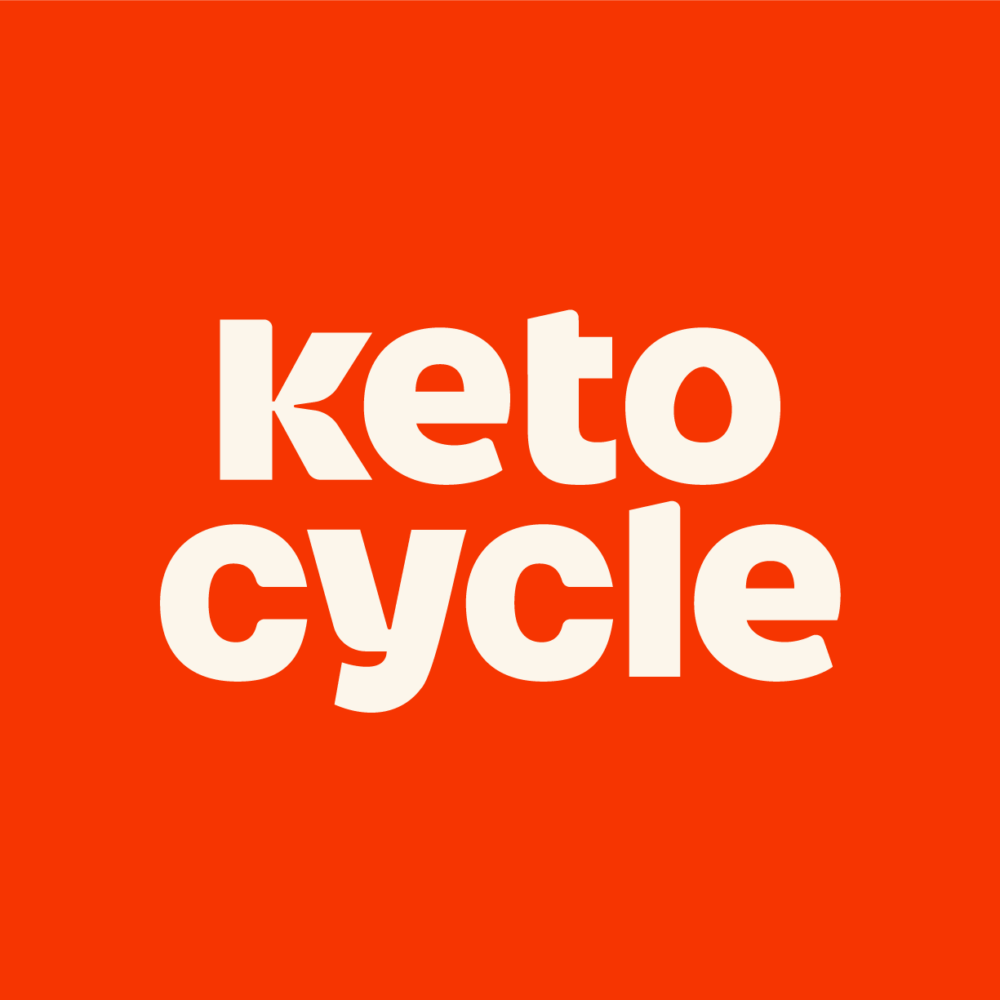
A ketogenic diet app designed to make keto easy. From the start.
- Personalized meal plans & workouts
- 10,000 keto recipes + vegetarian-friendly recipe database
- Customizable grocery list
- Calorie tracker
- Keto education and overviews of current trends
You should also focus on other nutrients that boost fat metabolism. Some support energy turnover, while others keep your muscles healthy.
You need a balance of good fats, moderate protein intake, and nutrients like caffeine and EGCG. The latter is there to improve your uptake of fat into the muscles and other tissues as a fuel source.
The foods are there to provide the resources but also ensure you’re getting the most from them. This combination makes these foods to eat before running on keto so powerful.
Exercise Intensity and the Ketogenic Diet
The intensity of a workout is usually a major factor in how you eat. For keto and “normal” dieting alike, calorie intake is crucial.
The main distinction is that the period for food consumption on keto is greater. Typically, you’ll be burning your meals for close to 12 hours. Fats, which fuel your exercises, do not absorb and burn as quickly as carbs.
This means what you eat before running on keto is slightly less important. Don’t eat carbs before workouts – they reduce your fat-burning. This allows you to boost fat-burning and spare glucose for when you really need it. This is for climbing hills, sprinting, and higher-intensity running.
9 Best Keto Foods and Snacks to Eat Before a Run
These are our favorite pre-workout meals and snacks on keto They help you burn fat as fuel, improve your fat adaptation, improve your runs, and help you lose weight.
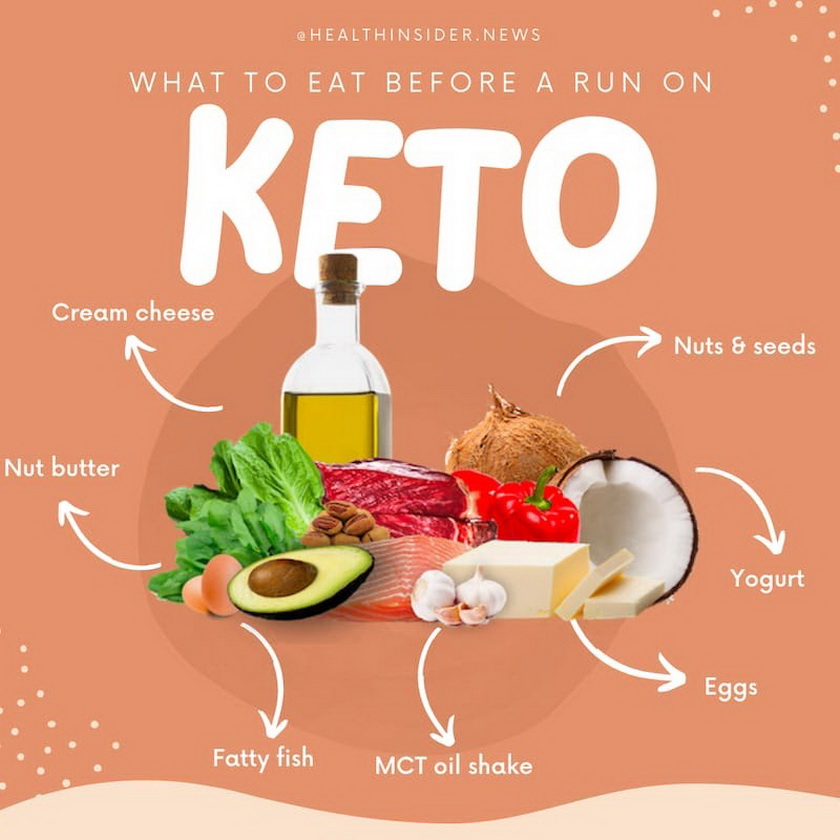
Let’s dive right in…
#1 Nuts and seeds
Nuts and seeds are a key part of a keto diet. They provide essential vitamins and minerals – including electrolytes.
When running, these minerals are key for muscles to work at their best. They also maintain hydration status as you sweat out old minerals.
Nuts and seeds are also prime candidates for the best high-fat pre-workout snacks. Walnuts, for example, are rich in omega-3 fat a-linolenic acid (ALA). ALA is a healthy fat that supports better overall metabolism and short-term fat-burning.
Some seeds are perfect pre-workout foods on a keto diet, providing fats and proteins. This supports muscle and tendon health during exercise, preventing breakdown. This signals to your body that you don’t need to cannibalize important tissues.
Chia and hemp seeds are particularly useful. They can be prepared easily with soaking or as part of a meal. Chia pudding, made with low-carb coconut milk, is a great example.
#2 Eggs
Eggs are perfect as a pre-workout food because they’re rich in protein and faster-absorbing fats. They’re full of vitamins and minerals, providing comprehensive support.
One of the most important benefits of pre-workout eggs is that they’re easy to digest. Eggs are some of the most bioavailable and digestible foods. This is perfect before a run to reduce the risk of feeling heavy, which can be uncomfortable.
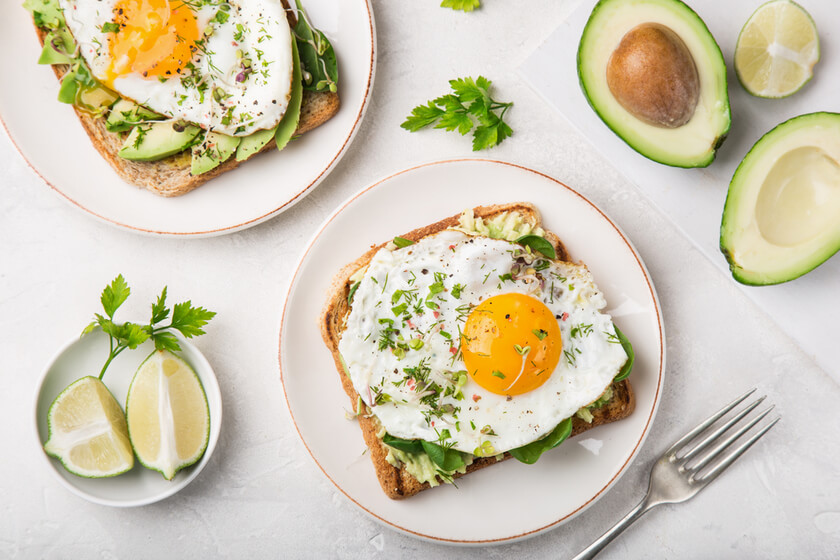
The reduction of heavy foods contributes to how you feel, as well as how you perform. Running economy has a range of factors, and the way you feel can’t be overlooked.
Even combined with heavier ingredients like meats, eggs remain light. A perfect, nutritious choice before a run to maintain ketosis.
#3 Fatty fish
Fatty fish are perfect for keto. They should make up a significant part of your diet – offering the best fats and proteins around. They’re digestible, delicious, and versatile for cooking and preparation.
Salmon is the most popular example and can also be eaten with eggs. It offers a huge amount of the healthiest fats (omega-3s EPA and DHA) and protein. It also packs tons of vitamin A and D, which are great for cell health and mental performance.
You can combine other fatty fish like mackerel and whitebait with other foods. Sauces can be keto-friendly, too! They’re digestible, stomach-friendly, and easy to fit into your diet.
#4 Nut butter
Nut butter is popular with runners because it’s high-calorie and fatty.
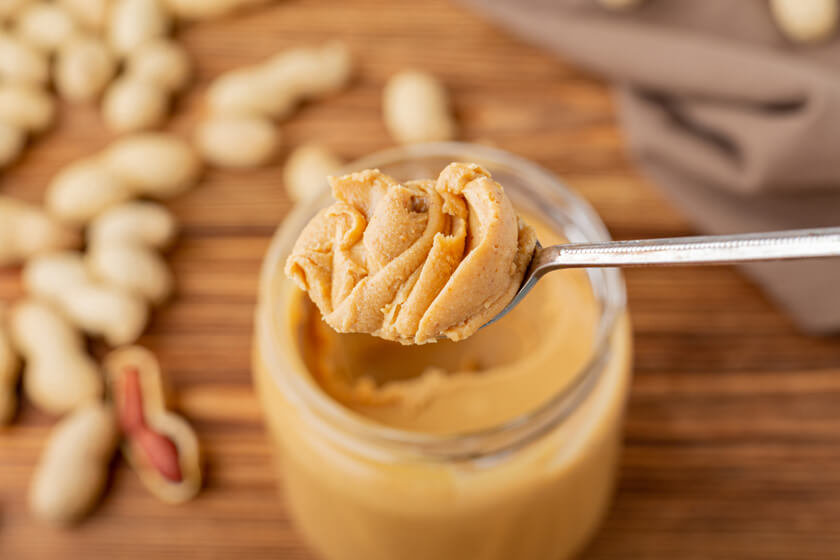
This is perfect for fueling a run on keto and is definitely not limited to peanut butter. Almond, hazelnut, and Brazil nut butter are all popular choices.
Natural nut butter is low-carb, high in good fats, and super convenient. You can even blend these into a pre-workout keto shake with chia seeds and MCT-rich fats. Just avoid the refined, added sugar brands.
#5 Bulletproof coffee
It doesn’t count as a pre-workout meal, but bulletproof coffee is a popular choice. It’s a smart pre-workout snack for keto-adapted runners. It involves stirring butter into coffee. It’s creamy, salty, and packed with MCTs.
Before endurance exercise on keto, it’s a great choice. It offers a satisfying burst of calories and caffeine. Both support athletic performance.
The most important combination here is caffeine and MCTs. They both boost fat metabolism – and even more when combined. The ketogenesis of MCTs provides a perfect fuel source. Then caffeine improves the use of fats in muscles, driving performance.
The result is a powerful fuel source for mental and physical performance. This relies on using high-quality, grass-fed butter. A high-fat dairy product like butter varies in quality. Good butters are higher in MCTs and omega-3 fats. These are crucial to getting optimal performance from your bulletproof coffee.
You can also use either coconut oil or MCT oils with coffee. This isn’t the classic “bulletproof coffee” recipe but does the same thing. The MCT content is higher and may offer more pronounced benefits. It’s still a powerful combination of caffeine and enough fats.
#6 Yogurt and blueberries
Low-fat Greek yogurt is one of the best forms of dietary protein and fat and a powerful probiotic to support gut health. It’s also high in MCTs, vitamins B2 and B12, and a range of minerals.
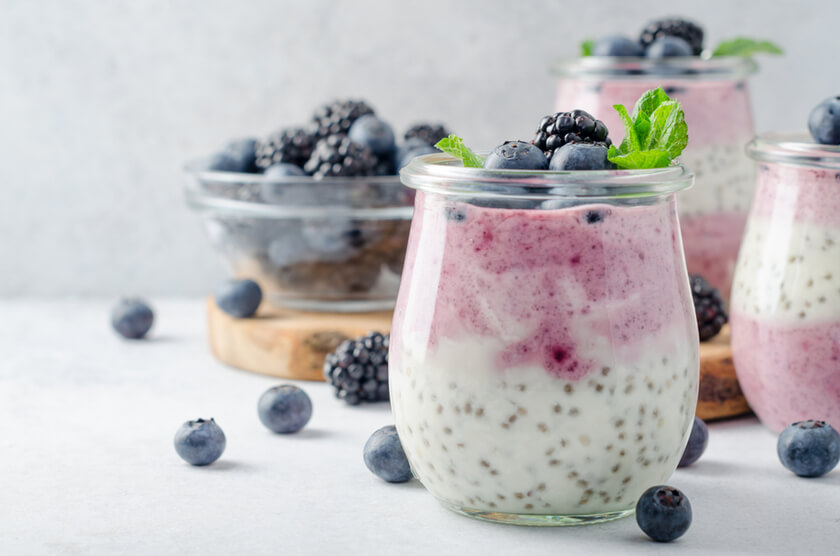
Combine yogurt with a few blueberries for an effective keto-friendly snack. This offers high-quality fats, a small number of carbs, and a light source of calories. You can also add nuts and seeds to improve your calorie intake and provide extra texture.
#7 Cream cheese and cultured dairy
Just like yogurt, cottage cheese and other cultured dairy can fuel great runs. They’re light in the stomach, rich in micronutrients and MCTs. They’re high in protein to support muscles and tendons. These tissues carry most of the stress when running and need nutrition support.
This is a perfect source for improving bone and joint health, too. The combination of protein, vitamin D, and calcium is perfect to drive bone health and density. This is one of the major benefits of running. It just needs nutrient support to prevent major stress-fracture and joint injury risks.
You can also use small chunks of cheddar cheese or Emmental with cured meats as post-workout snacks. The electrolytes, protein, and fats help improve recovery.
#8 MCT oil shake
Protein shakes are one possible option. While you can’t combine them with carbs as you might on a “normal” diet, they’re still a good option. Shakes that combine protein powder with coconut milk and MCT oil or coconut oil are perfect. Fresh berries and cocoa powder are also great on race day.
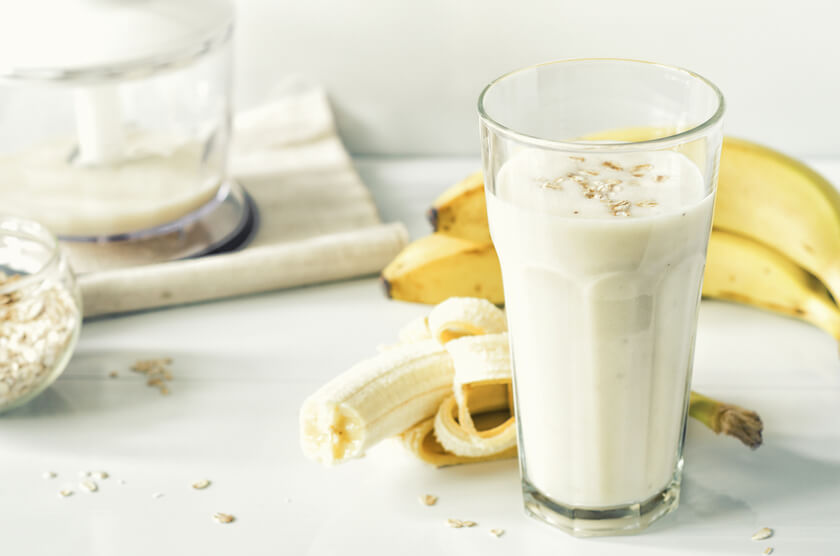
These have all the hallmarks of great keto pre-workout foods. Fast-acting fats, protein to support muscles and tendons, and micronutrients. If you’re in a pinch, a fast-absorbing calorie-rich drink is a perfect option to support a better run.
#9 Nothing – yes, it’s an option too!
One of the most important options is simply not eating before a run. Fats are long-term energy and last for ages. Fasted running also can help you get keto-adapted while improving body composition.
If you’ve eaten a healthy diet over the last 24 hours, you should be fine running on an empty stomach. You’ll feel “light” and reduce the risk of digestive discomfort. And you won’t experience a major performance drop-off!
Importance of Electrolytes for Running on Keto
Electrolytes are always important. They balance your muscle chemistry to keep you healthy and control hydration status. If you’re electrolyte deficient, you’re going to get fatigued faster. It will also be more severe and last longer than if you’d fuelled up properly.
On keto, these roles are even more important. You’re going to be getting fewer electrolytes from a number of food sources. Most people’s minerals come from cereals and other carb sources. When these are eliminated, the risk of electrolyte deficiency shoots up. This is one of the major factors in keto flu, for example.
Food sources on keto benefit from higher electrolyte content. Running demands electrolytes. It involves lots of muscular work and sweating – which use up your essential minerals. If you neglect electrolytes, your performance and recovery will suffer.
A Word From our RD
Ketogenic diets and other low-carb, high-fat diets cannot use pre-workout starches. This makes them different from normal running diets.
Feeding priorities before exercise are completely different. Pre-workout fats and proteins are slower-absorbing. Medium-chain triglycerides are an interesting option to promote fat metabolism. Food choices for keto are about the fat type, quality, and source.
MCTs are an interesting addition to the diet and may have performance benefits. They may improve the running economy and metabolism alike.
By carefully selecting pre-workout foods, you can get the most out of a running workout. This improves both the ketogenic effects of exercise and its metabolic foundations. Food choices are important in everyday function, and this is just one great example.
Conclusion
So, what to eat before a run on keto? The best foods to eat before running on keto are rich in MCTs and high-quality fats, protein, and minerals. Consider how food sits in your stomach, the energy it provides, and the key nutrients.
It’s a simple formula, and you can apply it to your own favorites.
Running and keto are a great match. They have a cyclical connection in which they improve each other. Runners should not only be able to follow a ketogenic diet, but they should be the primary group to do so.
Keto diets are all about smart choices, and we recommend experimenting. Start with the 9 strategies we’ve outlined, and then you can start experimenting. Once you’ve got staples, it’s easy to play around to find what suits you best.

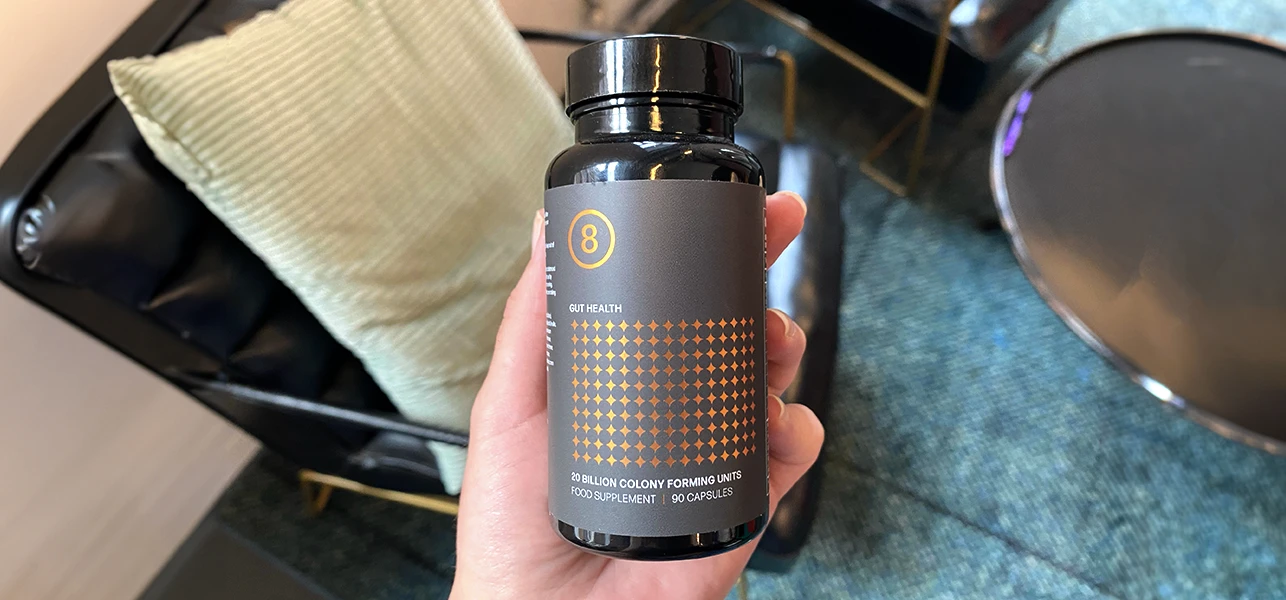

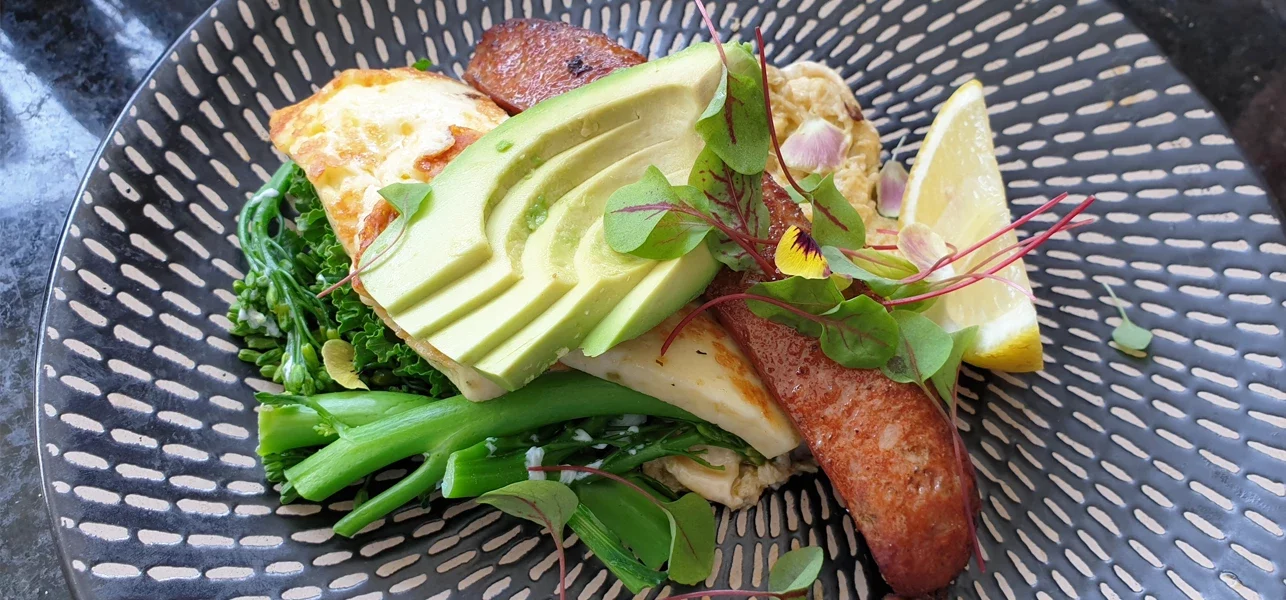

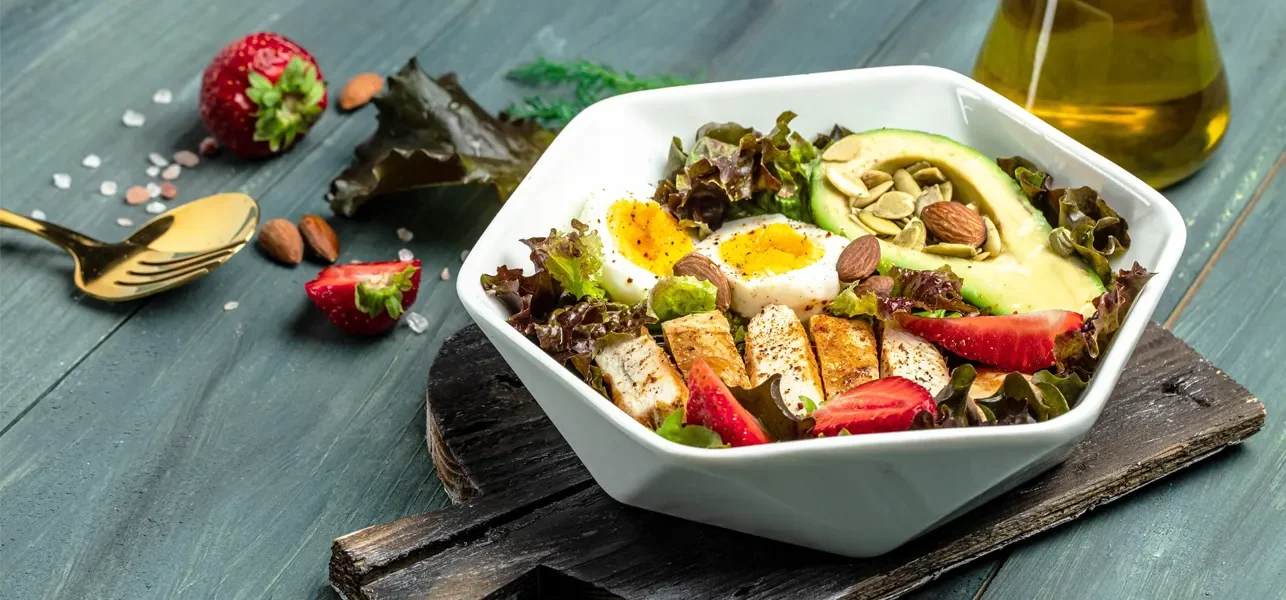

Comments (0)